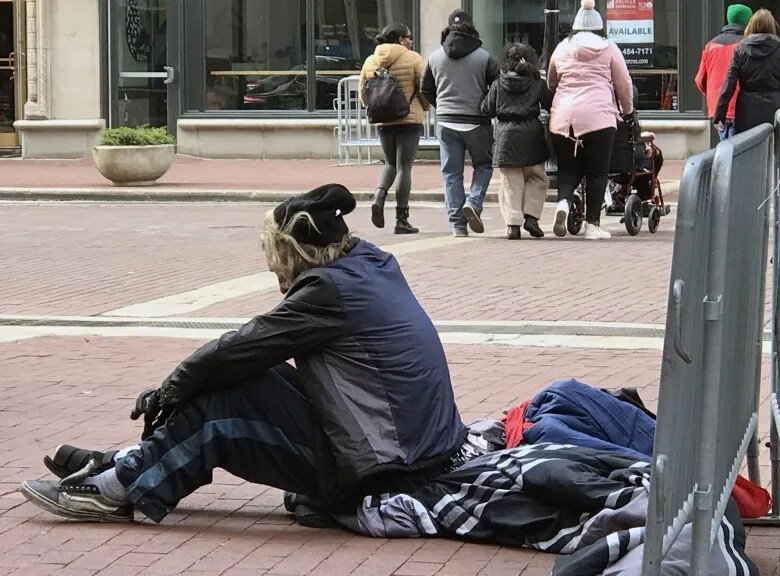
Indianapolis – The Indiana House of Representatives has passed Senate Bill (SB-197) by a vote of 52-40, a move that is generating controversy. The bill would allow law enforcement to arrest homeless individuals for a misdemeanor if they refuse offers of emergency shelter and services while sleeping or camping in public places. The bill has now been sent back to the Senate for further discussion on amendments.
SB-197 was originally proposed to protect the rights of property owners facing housing violations, regulate illegal squatting, and eliminate the requirement for landlords to provide tenants with utility usage data. However, an amendment criminalizing homelessness was added during the House committee review process.
During the House floor debate, Republican Representative Andrew Ireland of Indianapolis argued that some homeless individuals "need to be put in the back of a police car before they are willing to be told to accept emergency shelter and services." He added that his amendment was not intended to punish the homeless but rather to help them, noting that it includes provisions for connecting them with mental health services and problem-solving courts.
In response, Democratic Representative Carey Hamilton of Indianapolis countered that the cost of housing a homeless person in jail for a day is twice the cost of a shelter bed. Fellow Democrat Representative Greg Porter also criticized the bill, stating that it tells homeless individuals, "the only way we can help you is to lock you up."
Meanwhile, Donte Hendricks, who has been living in a tent for over a week on the sidewalk of East New York Street under the I-65 overpass, said in a hoarse voice that sending homeless people to jail for not wanting to live on the streets will not solve Indianapolis' homelessness problem. He stated, "Only the jail and the police benefit. Good for the judge. They're making money, and both sides are making money. It's a gain for them, but a loss for us. They don't care about us."
Hendricks continued, "A lot of homeless people can't speak, have overdosed, been assaulted, or been dragged and abused by the police, just because they have nowhere to live." He expressed his despair, saying, "I don't have a criminal record. I'm 34 years old, and it would be terrible because I didn't want to come here. Society pushed me here, and if they do this, they will force a criminal record on me. That's what they want. Until they come and tell me to move or go to jail, it's the only thing I can do. I can't get a house, and I can't get a job, so it's really terrible. I lose, and they win."
On a typical winter night, an estimated 1,700 homeless individuals sleep in shelters, temporary housing, or on the streets in Indianapolis. If SB-197 is finally approved, arrested and charged homeless individuals could face up to 60 days in jail or a $500 fine. The bill is scheduled to take effect on July 1, 2026.
Homelessness in the U.S.: According to a 2023 report by the U.S. Department of Housing and Urban Development (HUD), the number of homeless people across the United States is estimated to be around 650,000. This is an increase of approximately 12% compared to the previous year, and the homelessness problem is particularly severe in urban areas.
Causes of Homelessness: The causes of homelessness are complex. Various factors can lead to an individual becoming homeless, including economic hardship (job loss, income reduction), housing shortages and high housing costs, mental illness, drug addiction, and domestic violence.
Controversy over Homelessness Criminalization Bills: Bills that criminalize homelessness are being criticized from a humanitarian perspective. Homelessness is often the result of socio-structural problems rather than individual choice, and it is argued that fundamental solutions such as housing support, medical services, and job training are more important than punishment. There are also concerns that criminalizing homelessness can reinforce social stigma and make it more difficult for these individuals to reintegrate into society.
Alternative Approaches: Some cities are implementing support-oriented policies rather than punitive measures to address homelessness. Expanding the supply of affordable public housing, increasing the number and quality of shelters, strengthening support for mental health and drug addiction treatment, and providing job training programs are presented as more effective solutions to help homeless individuals become self-sufficient and reintegrate into society.
[Copyright (c) Global Economic Times. All Rights Reserved.]



























